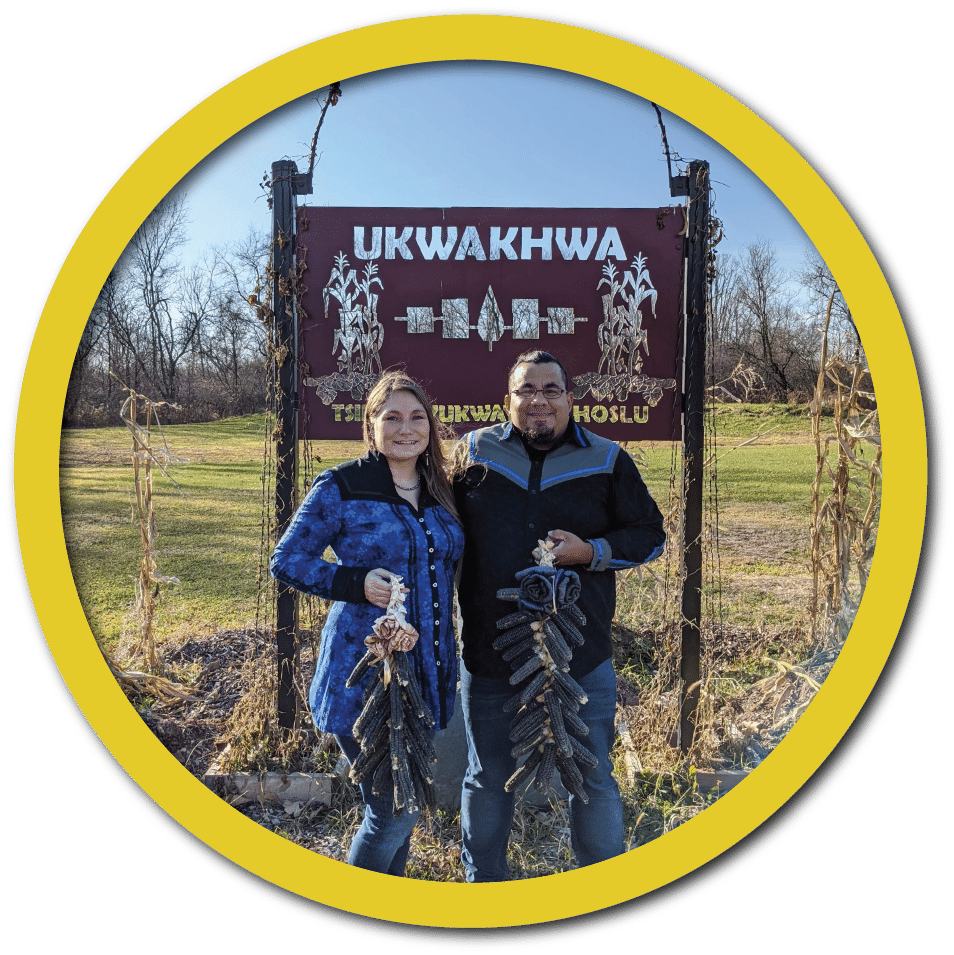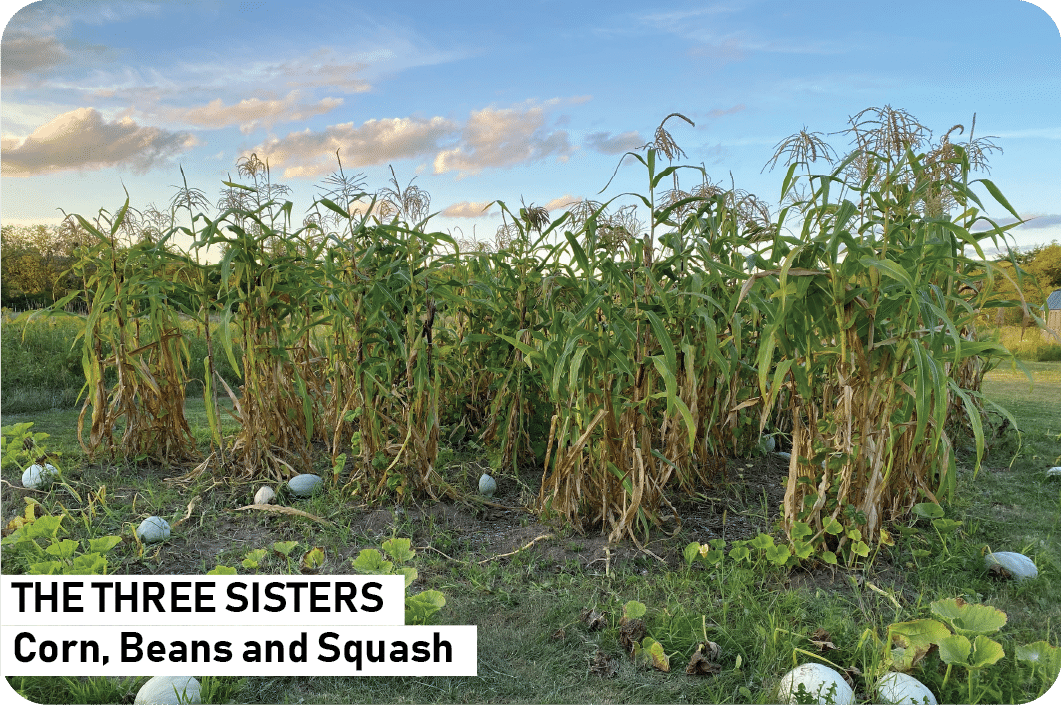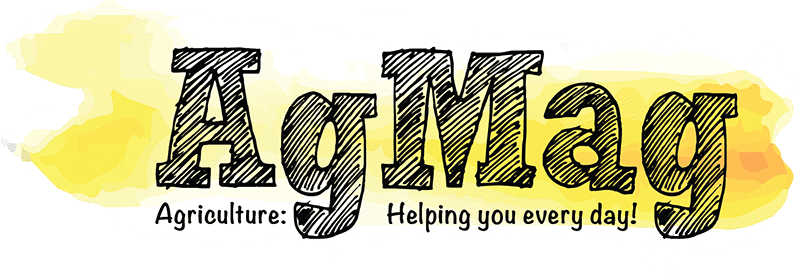Meet The Farmer
Steve and Becky Webster
In the spring of 2017, Oneida Nation citizens Steve and Becky Webster purchased 10 acres of land on the Oneida Reservation near Green Bay Wisconsin. They grow traditional, heirloom foods, with an emphasis on their native Haudenosaunee (hoe-dee-no-SHOW-nee) varieties of corn, beans, and squash. When grown together, these three plants are often called the three sisters.
The three sisters help each other out. The corn grows tall and strong, and serves as a pole for the beans to climb. As they grow, the beans put nitrogen back into the soil which is an important nutrient that corn needs to grow. The squash spreads on the ground below to prevent weeds from growing and to keep the moisture in the soil. The squash also helps to keep animals out of the garden.


The Websters plant the three sisters in mounds of soil Steve and Becky are proud of their farm and how they grow their crops. They hope to make their farm a place where the community can come to learn about gardening, farming, and making traditional tools and crafts. that are five feet apart, one foot tall, and three feet wide. They do this to help protect the seeds from getting too wet in the spring, and to encourage the water to drain. Planting the three sisters in mounds means they don't have to till the soil which leads to more soil nutrients and less soil erosion.
Steve and Becky are proud of their farm and how they grow their crops. They hope to make their farm a place where the community can come to learn about gardening, farming, and making traditional tools and crafts.
Minnesota Connection
Historical trading routes have been identified that allowed tribal nations across North and South America to trade products with one another. Rebecca and her family are continuing this historic trading tradition by providing their Oneida white corn seed to Minnesota tribes, like the Fond du Lac Band of Lake Superior Chippewa, to grow this important indigenous food crop here in Minnesota.
For 7 Generations
When making an important decision, an ages-old Native American question was: "How will this affect the people seven generations from now?"
What do you think this meant?
How would thinking like this make a difference in what we do to the environment today?
